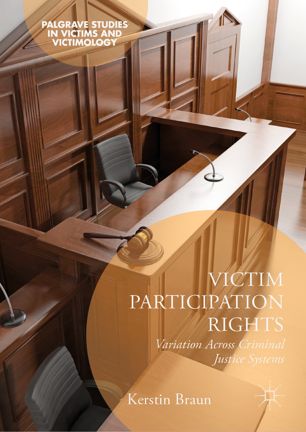

Most ebook files are in PDF format, so you can easily read them using various software such as Foxit Reader or directly on the Google Chrome browser.
Some ebook files are released by publishers in other formats such as .awz, .mobi, .epub, .fb2, etc. You may need to install specific software to read these formats on mobile/PC, such as Calibre.
Please read the tutorial at this link: https://ebookbell.com/faq
We offer FREE conversion to the popular formats you request; however, this may take some time. Therefore, right after payment, please email us, and we will try to provide the service as quickly as possible.
For some exceptional file formats or broken links (if any), please refrain from opening any disputes. Instead, email us first, and we will try to assist within a maximum of 6 hours.
EbookBell Team

5.0
78 reviewsThis book traces victims’ active participatory rights through different procedural stages in adversarial and non-adversarial justice systems, in an attempt to identify what role victims play during criminal proceedings in the domestic setting. Braun analyses countries with different legal traditions, including: the United States, England, Wales and Australia (as examples of mostly adversarial countries); Germany and France (as examples of inquisitorial systems); as well as Denmark and Sweden with their mixed inquisitorial-adversarial background. Victim Participation Rights is distinctive in that it assesses the implementation of formal processes and procedures concerning victim participation at three different procedural stages: first, investigation and pre-trial; second, trial and sentencing; and third, post-trial with a focus on appeal and parole. In addition, Braun provides an in-depth case study on the general position of victims in criminal trials, especially in light of national criminal justice policy, in Germany, a mostly inquisitorial system and Australia, a largely adversarial system. In light of its findings, the book ponders whether, at this stage in time, a greater focus on victim protection rather than on active procedural rights could be more beneficial to enhancing the overall experience of victims. In this context, it takes a close look at the merits of introducing or expanding legal representation schemes for victims.